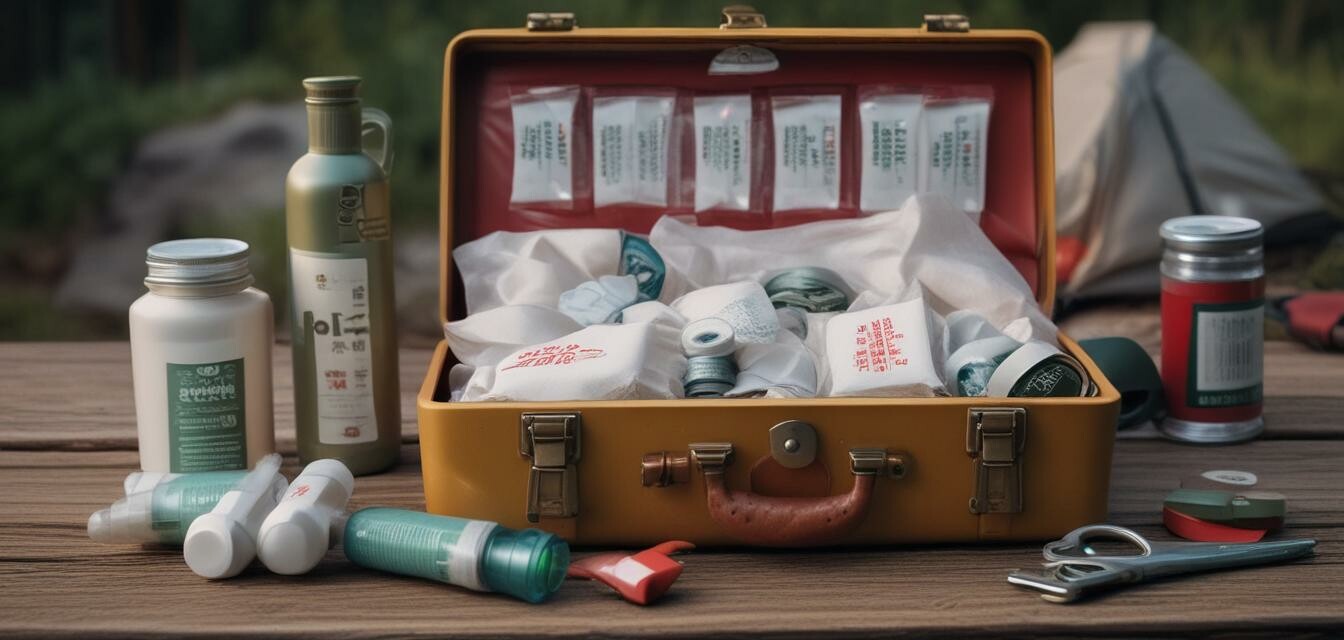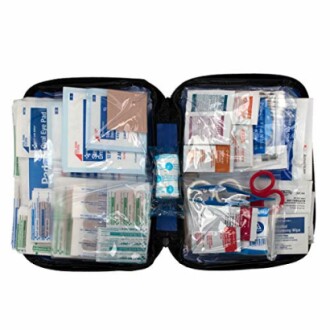
Essential First Aid Gear for Camping
Key Takeaways
- Always pack a comprehensive first aid kit to address common camping injuries.
- Prioritize items like bandages, antiseptics, and pain relievers for emergency preparedness.
- Keep a waterproof first aid kit for outdoor protection against the elements.
- Familiarize yourself with basic first aid procedures to enhance safety efforts.
When venturing into the great outdoors, safety should always be a top priority. Whether you're planning a weekend camping trip or a week-long hiking adventure, having the right first aid gear can make all the difference in an emergency. This guide covers critical first aid items that beginners should include in their camping gear, ensuring that you're well-prepared to handle unexpected situations.
Why First Aid Gear Is Essential for Camping
Camping can be a wonderful escape into nature, but it also poses risks. Accidents such as cuts, scrapes, insect bites, and allergic reactions can occur. A well-stocked first aid kit not only addresses these potential injuries but also gives peace of mind, allowing you to enjoy the wilderness. Below are some essential first aid items to pack for your next camping trip.
Must-Have First Aid Items for Camping
| First Aid Item | Description | Recommended Quantity |
|---|---|---|
| Adhesive Bandages | For small cuts and scrapes. | 10-15 |
| Antiseptic Wipes | To clean wounds before applying bandages. | 5-10 |
| Gauze Pads | For larger wounds that require coverage. | 4-6 |
| Medical Tape | To secure gauze pads in place. | 1 roll |
| Antibiotic Ointment | Helps prevent infections. | 1 tube |
| Cold Pack | For injuries requiring icing. | 1-2 |
| Pain Relievers | Ibuprofen or aspirin for aches and pains. | 10 tablets each |
| First Aid Manual | A guide for managing injuries. | 1 |
Choosing the Right First Aid Kit
A comprehensive first aid kit should be your go-to option for camping. One highly recommended option is the First Aid Only 299 Piece All-Purpose First Aid Emergency Kit. This kit is waterproof, compact, and lightweight, making it perfect for on-the-go emergencies.
First Aid Only 299 Piece All-Purpose First Aid Emergency Kit
This comprehensive emergency kit includes essential items such as adhesive bandages, antiseptic wipes, and cold packs, all organized in a compact case for easy access.
Explore NowBasic First Aid Procedures to Remember
Having the right equipment is only half of the equation; knowing how to use it is crucial as well. Here are some basic first aid procedures that every camper should know:
- CPR: Understand the basics of administering CPR in case of cardiac arrest.
- Wound Care: Clean the wound thoroughly and apply a bandage.
- Choking: Learn the Heimlich maneuver to assist a choking victim.
- Burn Treatment: Know how to treat minor burns by cooling the area and using burn ointment.
Additional Safety Gear to Consider
Along with first aid supplies, consider packing the following safety gear:
- Emergency blanket
- Flashlight with extra batteries
- Multi-tool or Swiss army knife
- Whistle to signal for help
- Insect repellent
Conclusion
Being prepared for emergencies is vital when camping. Ensuring you have a comprehensive first aid kit, knowledge of basic first aid procedures, and extra safety gear helps you enjoy your adventure in the great outdoors with confidence. For a complete guide on essential camping gear, make sure to check out our article on Essential Camping Gear for Beginners.
Pros
- Comprehensive supplies for various emergencies
- Easy to transport and store
- Helps ensure a safer camping experience
Cons
- May be heavier with all supplies
- Requires knowledge of first aid practices
- Periodic check-ups needed to restock items
